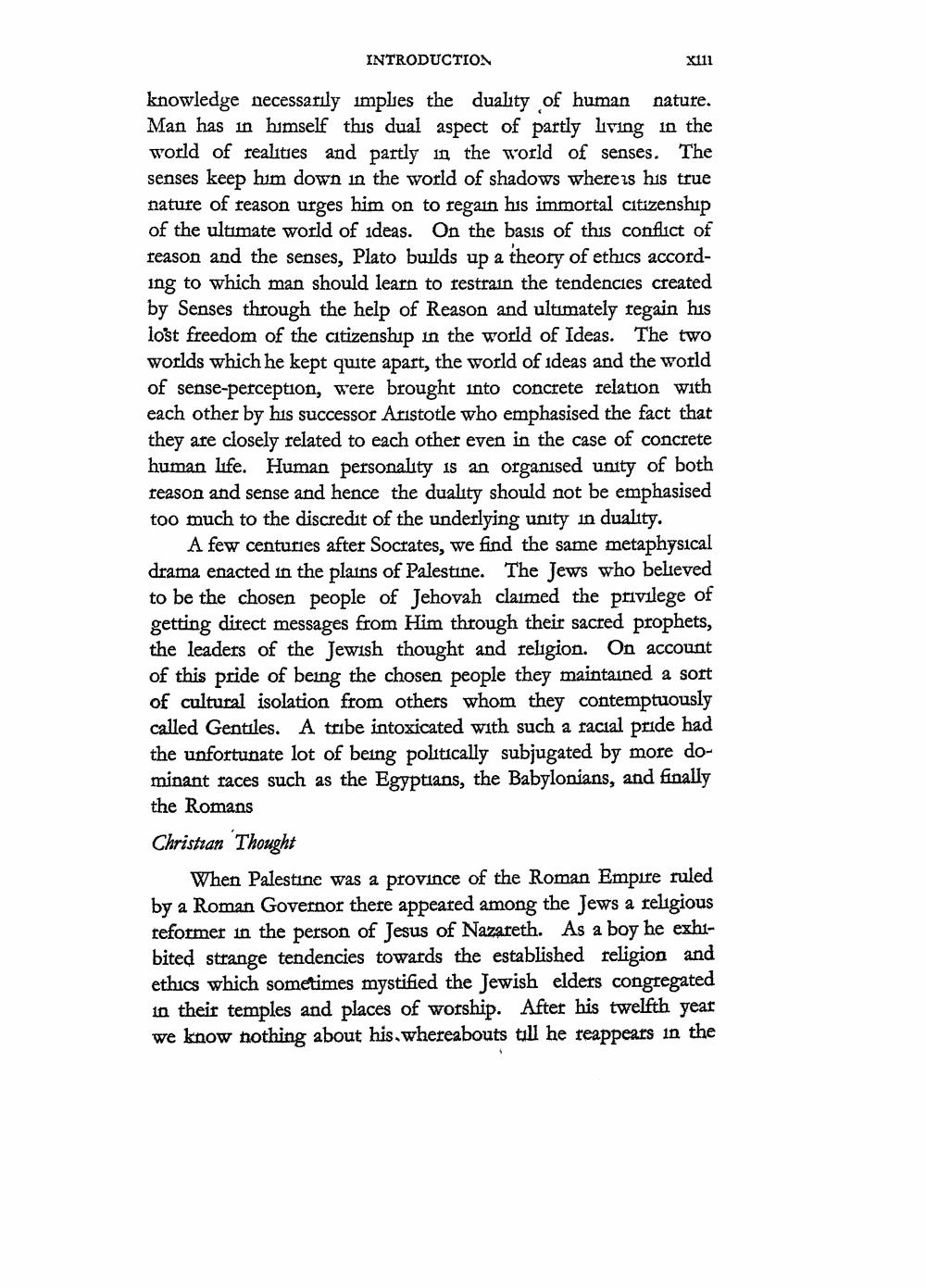________________
INTRODUCTION
knowledge necessarily implies the duality of human Man has in himself this dual aspect of partly living in the world of realities and partly in the world of senses. The senses keep him down in the world of shadows where is his true nature of reason urges him on to regain his immortal citizenship of the ultimate world of ideas. On the basis of this conflict of reason and the senses, Plato builds up a theory of ethics according to which man should learn to restrain the tendencies created by Senses through the help of Reason and ultimately regain his lost freedom of the citizenship in the world of Ideas. The two worlds which he kept quite apart, the world of ideas and the world of sense-perception, were brought into concrete relation with each other by his successor Aristotle who emphasised the fact that they are closely related to each other even in the case of concrete human life. Human personality is an organised unity of both reason and sense and hence the duality should not be emphasised too much to the discredit of the underlying unity in duality.
A few centuries after Socrates, we find the same metaphysical drama enacted in the plains of Palestine. The Jews who believed to be the chosen people of Jehovah claimed the privilege of getting direct messages from Him through their sacred prophets, the leaders of the Jewish thought and religion. On account of this pride of being the chosen people they maintained a sort of cultural isolation from others whom they contemptuously called Gentiles. A tribe intoxicated with such a racial pride had the unfortunate lot of being politically subjugated by more dominant races such as the Egyptians, the Babylonians, and finally
the Romans
X111
Christian Thought
When Palestine was a province of the Roman Empire ruled by a Roman Governor there appeared among the Jews a religious reformer in the person of Jesus of Nazareth. As a boy he exhibited strange tendencies towards the established religion and ethics which sometimes mystified the Jewish elders congregated in their temples and places of worship. After his twelfth year we know nothing about his. whereabouts till he reappears in the




